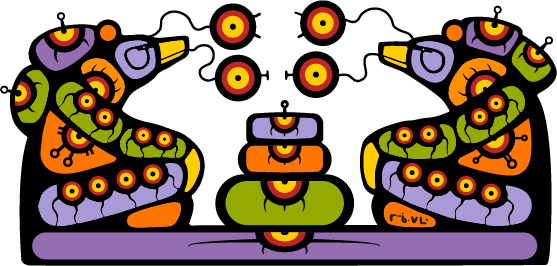niskipîsim, athîkipîsim and opiniyâwîwipîsim
Air Date: May 16, 2023
Summary
Solomon Ratt and Darian Agecoutay go into further detail on the Cree calendar months of April, May and June. They also discuss the differences between the ‘th’ and ‘y’ dialects.
SERIES
pîsimwak
HOST & PRODUCER
Solomon Ratt
Campbell Stevenson
Episode Guest
tânisi kahkiyaw, Darian âcikahtê nitisiyihkâson êkwa kâ-awâsis iskonikanihk nipê-ohcîn. nîsitanaw-nêwosâp nititahtopiponân êkwa ê-wîkiyân mêkwâc oskana kâ-asastêki. nimêkwâ-kiskinwahamâkân kihci-kiskinwahamâtowikamikohk ôma mâci-nêhiyawêwin Solomon Ratt asici.
Hello everyone, my name is Darian Agecoutay and I come from the Cowessess reserve. I am 24 years old and living in Regina right now. I am currently teaching beginner Cree at First Nations University alongside Professor Solomon Ratt.Darian Agecoutay grew up on the Cowessess First Nation until he was 17. He is a mix of nêhiyaw, anihšināpē, dakhóta and nakota, and he speaks nêhiyawêwin (Cree) and English. Both sides of his family lost their languages some time ago so he was not able to hear Cree or Saulteaux growing up. However, he learned nêhiyawêwin at First Nations University and completed a Bachelor of Arts in Cree Language Literacy in 2021.
While Darian is not fluent in nêhiyawêwin, he is working towards it becoming his second language. He’s also learning ānihšināpēmowin (Saulteaux) and dakhótiyapi (Dakota).
Darian says this project allows him to speak about his journey as a second-language learner in hopes it will encourage others to start learning.
Through this podcast, he aims to encourage family units and communities to revitalize their language(s) where it is needed. He wants to teach future generations about Indigenous worldview and traditional ways, saying “by doing this in the language, already we are living our teachings and knowledge.”
For those on their journey to recover their language, he shares the words that were said to him years ago: êkây pômêk (don't give up), âhkamêyimok (keep on going). He adds that as Indigenous people, the gift of language is in our blood. It just takes some time and work for that blood memory to be present.








Cree knowledge keeper Solomon Ratt and teacher Darian Agecoutay discuss the Cree months of opaskowipîsim, ohpahowipîsim, nôcihitowipîsim.